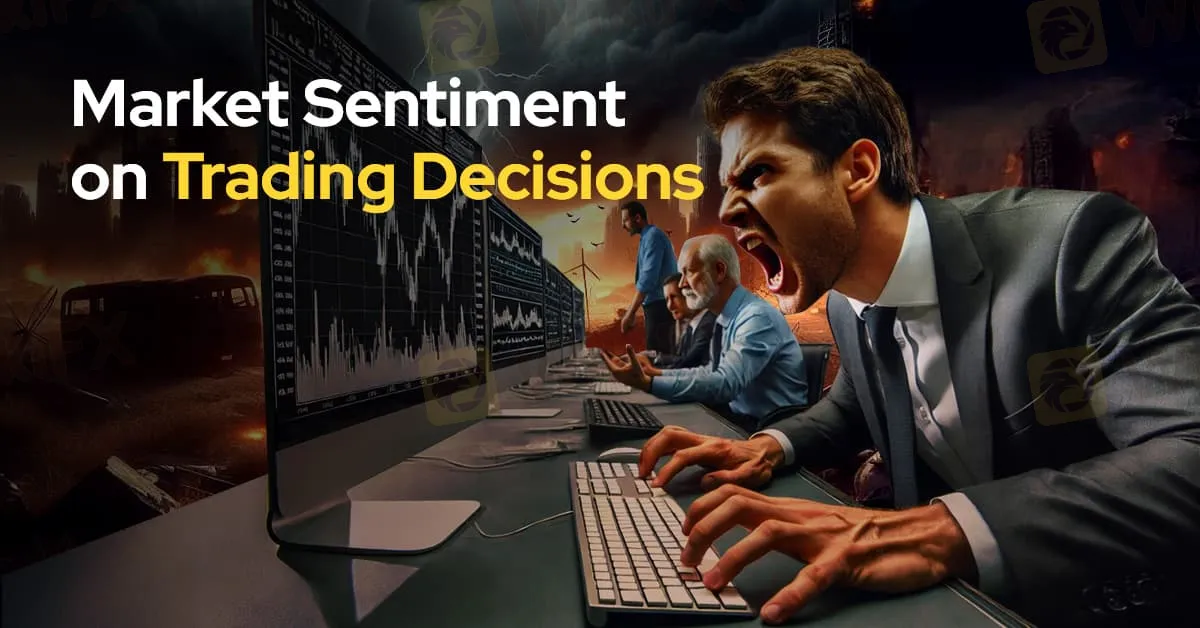简体中文
繁體中文
English
Pусский
日本語
ภาษาไทย
Tiếng Việt
Bahasa Indonesia
Español
हिन्दी
Filippiiniläinen
Français
Deutsch
Português
Türkçe
한국어
العربية
Market Sentiment on Trading Decisions
Abstract:Market sentiment refers to the overall attitude of investors toward a particular security or financial market. It plays a crucial role in shaping market trends and influencing trading decisions. Understanding market sentiment can help traders anticipate price movements and make more informed choices.

Market sentiment refers to the overall attitude of investors toward a particular security or financial market. It plays a crucial role in shaping market trends and influencing trading decisions. Understanding market sentiment can help traders anticipate price movements and make more informed choices.
What Is Market Sentiment?
Market sentiment is often driven by news, economic indicators, earnings reports, and global events. It can be categorized as bullish (optimistic) or bearish (pessimistic). Bullish sentiment indicates confidence in rising prices, while bearish sentiment suggests expectations of declining prices.
The Role of Psychological Factors
Emotions such as fear and greed significantly impact market sentiment. During periods of optimism, traders may overlook risks and drive prices higher. Conversely, in times of uncertainty, fear can lead to panic selling, exacerbating market declines. Recognizing these psychological factors is essential for understanding market dynamics.

Tools for Gauging Market Sentiment
- Surveys and Indices: Tools like the Consumer Confidence Index (CCI) and the Fear & Greed Index provide insights into investor sentiment. These indices aggregate data to reflect the mood of the market.
- Social Media and News Analysis: Monitoring social media platforms and news outlets can help traders gauge public sentiment. Positive or negative trends in discussions can signal potential market movements.
- Technical Indicators: Some traders use sentiment indicators, such as the Commitment of Traders (COT) report, which provides insights into the positioning of different market participants.
Influence on Trading Decisions
Understanding market sentiment allows traders to align their strategies with prevailing market conditions. For instance:
- Contrarian Strategies: Traders may take positions against prevailing sentiment, buying when others are selling (and vice versa) to capitalize on potential reversals.
- Trend Following: Traders might choose to follow the prevailing sentiment, entering positions that align with the dominant trend to maximize gains.
Conclusion
Market sentiment is a powerful force in the financial markets, influencing trading decisions and price movements. By understanding and analyzing sentiment, traders can improve their decision-making processes, adapt their strategies, and enhance their chances of success in the ever-changing landscape of trading.

Disclaimer:
The views in this article only represent the author's personal views, and do not constitute investment advice on this platform. This platform does not guarantee the accuracy, completeness and timeliness of the information in the article, and will not be liable for any loss caused by the use of or reliance on the information in the article.
Read more

Will natural disasters have an impact on the forex market?
The forex market is known for its rapid responses to global events, but the influence of natural disasters, such as earthquakes and typhoons, can be less straightforward. While headlines may scream about catastrophic damage and economic disruption, the long-term effects on currency values often depend on a blend of immediate shock and underlying economic fundamentals.

Why does your mood hinder you from getting the maximum return from an investment?
Investment decisions are rarely made in a vacuum. Aside from the objective data and market trends, our emotions—and our overall mood—play a crucial role in shaping our financial outcomes. Whether you’re feeling overconfident after a win or anxious after a loss, these emotional states can skew your decision-making process, ultimately affecting your investment returns.

Stock Market Trading Volume Drops by 97.58 Billion Naira This Month
In February, Nigeria's stock market trading volume dropped by 97.58 billion naira, with foreign investors pulling back. Can domestic investors sustain the market?

The One Fear That’s Costing You More Than Just Profits
The fear of missing out (FOMO) is NOT what you think it is! Read the three lesser-discussed components that contribute greatly to FOMO trading!
WikiFX Broker
Latest News
How Crypto Trading Transforms FX and CFD Brokerage Industry
UK would not hesitate to retaliate against US tariffs - No 10 sources
FCA Warns Against 10 Unlicensed or Clone Firms
CySEC Warns Against 14 Unlicensed Investment Websites
Top Currency Pairs to Watch for Profit This Week - March 31, 2025
Will natural disasters have an impact on the forex market?
Philippines Deports 29 Indonesians Linked to Online Scam Syndicate in Manila
Navigating the Intersection of Forex Markets, AI Technology, and Fintech
Exposed: Deceptive World of Fake Trading Gurus – Don’t Get Fooled!
AI-Powered Strategies to Improve Profits in Forex Trading
Currency Calculator







